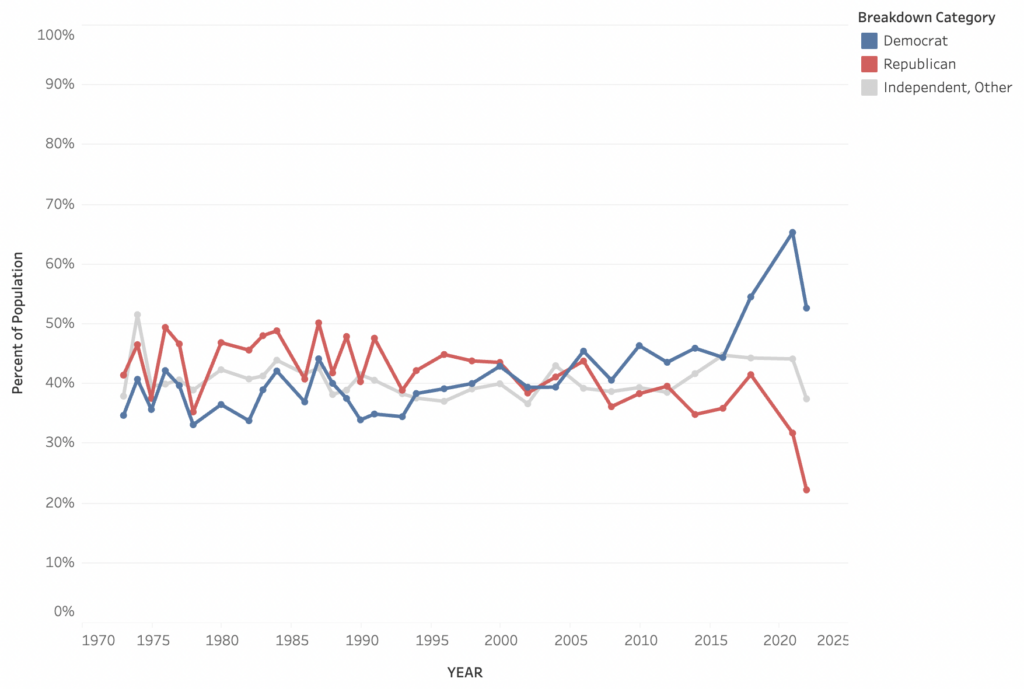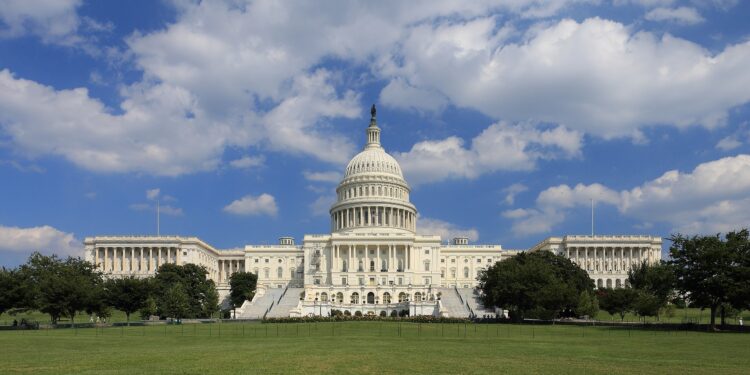When authorities in Britain and the U.S. took the unprecedented step of locking down the country in the spring of 2020, they assured us they were “following the science”. This was despite the fact that neither country’s pandemic preparedness plan made any mention of ‘lockdown’.
Indeed, the U.K.’s own plan clearly stated: “It will not be possible to halt the spread of a new pandemic influenza virus, and it would be a waste of public health resources and capacity to attempt to do so.” While several countries did manage to temporarily halt the spread of Covid, this was never a realistic option for Britain – much less a desirable one.
Indeed, the pre-2020 ‘science’ provided little if any justification for lockdown. A 2006 paper by four leading scientists described “large-scale quarantine” as something that “should be eliminated from serious consideration”. And a 2019 WHO report classified “quarantine of exposed individuals” as “not recommended under any circumstances”.
What were authorities doing when they locked down the country? “Following the Chinese Communist Party” would be a more accurate description.
Referring to China’s lockdown in January of 2020, Anthony Fauci stated, “that’s something that I don’t think we could possibly do in the United States, I can’t imagine shutting down New York or Los Angeles”. Mere months later, Fauci took part in a campaign to discredit scientists critical of lockdown.
In March of 2020, Sir Chris Whitty stressed the need to “minimise economic disruption”, while his counterpart, Sir Patrick Valence, talked about building up “herd immunity”. Both men subsequently backed the Government’s lockdown strategy, even though it was the exact opposite of the strategy they’d initially outlined.
Given all the above, you might expect the public to have become somewhat less trusting of the scientific community. So far, there’s no evidence of this in Britain. According to a survey carried out in June of 2021, over 30% of people trust scientists more than at the start of the pandemic, compared to under 10% who trust them less.
Americans, on the other hand, have become less trusting – at least since 2021. Here’s a chart showing the percentage who have “a great deal” of confidence in the scientific community, broken down by party identity. (The chart was brought to my attention by Twitter user ‘The Missing Data Depot’. It’s based on data from the General Social Survey.)

From 2021 to 2022, the percentage saying “a great deal” fell by 12 points among Democrats and 10 points among Republicans. However, it had previously increased among Democrats, so they’re back to where they were before the pandemic. Republicans, by contrast, have become consistently less confident over the last two waves of the survey.
(Note: these figures are not directly comparable with those I quoted above for the U.K. The British figures are for June of 2021, and the question was phrased differently.)
The trend among Democrats may simply represent a ‘return to baseline’ following a period of elevated confidence during the pandemic. The trend among Republicans reflects a dramatic and sustained loss of confidence. Between 1973 and 2018, the percentage of Republicans with “a great deal” of confidence never went below 35%. It has since plummeted to 22%.
And is it any wonder? Republicans were far more likely than Democrats to oppose lockdowns and mandates – in part due to basic differences in values (more emphasis on freedom, less on safety). Yet thanks to groupthink, deplatforming and biased media coverage, it seemed that the ‘scientific community’ was united against them.
This impression was reinforced when 1,000 “public health experts” signed a letter defending “anti-racism” protests in the middle of the pandemic on the grounds that “white supremacy is a lethal public health issue”.
Whatever else may be true, it can’t be healthy for one side in a democracy to have lost so much confidence in the scientific community. Winning back that confidence would require health authorities to admit to their mistakes – but I don’t see that on the horizon. Polarisation is here to stay.














To join in with the discussion please make a donation to The Daily Sceptic.
Profanity and abuse will be removed and may lead to a permanent ban.
Gove’s new definition of extremism will classify individuals or groups as extremist if they seek to undermine Britain’s system of liberal democracy
Liberal Democracy? What? We have no such thing.
We have an illiberal Kleptocracy, descending into Ill-Liberal globalist fascism.
So now, during the next scamdemic, from the non existing flying virus, generated by the non existing climate thingy, if I protest, post, or march, I will be a threat to this ‘thriving Liberal democracy’ and jailed, or maybe gassed?
To state the obvious, this entire nonsense of a system needs to be pulled down, the useless plod, Home office, border farce control, MHRA, the National Death Service, the Quangos, Pharmament etc etc etc.
You got it in one Ferdill.
“We all follow the Settled Science / “acceptable” opinions!”
Vote for anyone, you still get the WEF Uniparty!
Now, naughty DS readers, we’re coming for YOU!!!
Does this mean that the Government wii be by definition extremist?
Consensus cannot be maintained because it does not exist. The elite want to suppress majority opinion and permit or even encourage Muslim campaigns against us and against Israel.
the Tories know they’ve lost middle England so they seek office by out doing Labour in the vain hope of securing electoral support from them, from the blob and from Guardian and BBC audiences. They are so insular they believe these outcomes are possible.
Gove the ultimate COVID commie, this man is utterly a creature of the system.
I do hope Gove will have much more time after the election to fawn, revoltingly, on little Saint Greta.
There’s nothing genuinely liberal about the Establishment and the Authoritarian Uni-Party of Westminster.
Never mind not politicising it, why is the state concerned with extremism per se at all? There is criminal activity which may be individual or at a group level- we should be concerned with any situation where there is credible evidence that crimes have been committed or are planned, not policing opinion. Policing “extremism” is just another general warrant of the kind that the crown used in the North American colonies which was subsequently wisely made unconstitutional by the founding fathers.
“Gove’s new definition of extremism will classify individuals or groups as extremist if they seek to undermine Britain’s system of liberal democracy.”
And who will determine or define “undermine?” Further, what constitutes “seek to?” The mission statements of most public bodies contain guff about ‘striving,’ ‘aiming,’ ‘aspiring,’ and even ‘seeking,’ but these are get out words for the times they fail to meet their own standards.
Is Govey aiming to set up some “Definition Panels?”
Has Govey determined the sanctions for breaches and have said breaches been categorised for severity?
“The Communities Secretary is set to instruct ministers and officials to cut off contact with groups or individuals who breach the new definition, and local authorities are expected to follow suit.”
So rather than maintain dialogue barriers will be established. This all sounds one party state to me.
“local authorities are expected to follow suit.”
I’ll bet they are.
“Your central government grants will be cut by 5% if you do not comply.”
Oh, thank you Mr Gove.
This little enterprise has Davos Deviants written all over it.
And we “belligerents” will be extremists, anyone that “dares” to question the prevailing state orthodoxy. 2024 is 1984 delayed.
Precisely.
Gove’s new definition of extremism will classify individuals or groups as extremist if they seek to undermine Britain’s system of liberal democracy.
Perfect. Classifying groups as extremist if they seek (or actually do) behead British people is just too narrowly focussed. It’s absolutely unsuitable for thought-policing, more aggressive internet censorship and outlawing extreme right-wing extremist groups constructed for the purpose of creating the illusion that they exist. Insisting that radicalized muslims peacefully decapitating their supposed fellow countrymen would pose a public danger is a sign of structural islamphobia, anyway. People only die from that because they’re racists!
This mirrors similar endeavours by the current, far-left German government almost to the letter. Did ‘UN experts’ again create the wording?
People would be wise to pay less attention to “extremism” accusations and more time and attention, on the bent politicians and judicial.